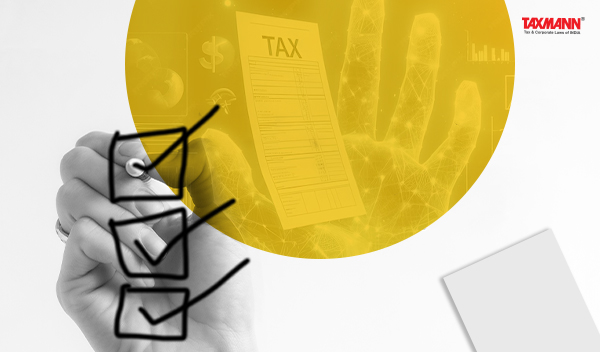CBDT Issues New Guidelines to Handle Applications for Condonation of Delay in Filing ITR with Refund/Losses
- News|Blog|Income Tax|
- 2 Min Read
- By Taxmann
- |
- Last Updated on 4 October, 2024

Circular No. 11/2024, dated 01-10-2024
Section 119(2)(b) of the Income-tax Act, 1961 gives the CBDT the authority to admit an application or claim for refund and carry forward and set off of loss. The Board has been delegated the power to specify the conditions subject to which an income-tax authority may admit such application or claim.
Accordingly, the CBDT has issued a circular no. 11/2024, dated 15-10-2024, in supersession of previous instructions, to deal with the applications for condonation of delay in filing returns claiming refund and returns claiming carry forward of loss and set off thereof containing comprehensive guidelines on the conditions for condonation and the procedures to be followed for deciding such matters.
The circular provides the following:
- The monetary limits for acceptance/rejection of applications for condonation of delay in filing returns claiming refund and returns claiming to carry forward of loss and set off thereof are as follows:
-
- Pr. Commissioners of Income Tax/Commissioners of Income Tax: Upto Rs. 1 crore for any one assessment year.
- Chief Commissioners of Income Tax: Exceeding Rs. 1 crore but not more than Rs. 3 crores for any one assessment year
- Principal Chief Commissioners of Income Tax: Exceeding Rs. 3 crores for any one assessment year
- Commissioner of Income Tax, Central Processing Centre (CPC), Bengaluru: For condonation of delay in verifying the return of income by sending the ITR-V.
- An application for condonation of delay shall not be entertained beyond 5 years from the end of the assessment year for which such application/claim is made. The time limit applies to applications filed on or after 01.10.2024.
- A condonation application should be disposed of within 6 months from the end of the month in which the application is received by the competent authority.
- Giving effect to the insertion of section 139(9A) made by Finance (No. 2) Act, 2024, it is provided that the authorities shall ensure the existence of a reasonable cause and genuine hardship for the delay in filing ITR. Further, the Assessing Officers may be directed by the authorities to conduct enquiries to deal with the application on merits.
- If a refund claim arises due to a Court order, the period during which the proceedings were pending before any Court shall be excluded when calculating the 5-year period. However, the condonation application must be filed within six months from the end of the month in which the Court order was issued or the end of the financial year, whichever is later.
- A belated application for a supplementary refund claim (claiming additional refund after assessment for the same year) can be considered for condonation if other conditions are met. The authority to accept or reject such claims within monetary limits is delegated to Pr.CCsIT/CCsIT/Pr.CsIT/CsIT, subject to these conditions:
-
- The assessee’s income is not assessable in the hands of another person under any provision of the Act.
- No interest will be allowed on belated refund claims.
- The refund results from excess TDS/TCS, advance tax, or self-assessment tax payments.
Click Here To Read The Full Circular
Disclaimer: The content/information published on the website is only for general information of the user and shall not be construed as legal advice. While the Taxmann has exercised reasonable efforts to ensure the veracity of information/content published, Taxmann shall be under no liability in any manner whatsoever for incorrect information, if any.

Taxmann Publications has a dedicated in-house Research & Editorial Team. This team consists of a team of Chartered Accountants, Company Secretaries, and Lawyers. This team works under the guidance and supervision of editor-in-chief Mr Rakesh Bhargava.
The Research and Editorial Team is responsible for developing reliable and accurate content for the readers. The team follows the six-sigma approach to achieve the benchmark of zero error in its publications and research platforms. The team ensures that the following publication guidelines are thoroughly followed while developing the content:
- The statutory material is obtained only from the authorized and reliable sources
- All the latest developments in the judicial and legislative fields are covered
- Prepare the analytical write-ups on current, controversial, and important issues to help the readers to understand the concept and its implications
- Every content published by Taxmann is complete, accurate and lucid
- All evidence-based statements are supported with proper reference to Section, Circular No., Notification No. or citations
- The golden rules of grammar, style and consistency are thoroughly followed
- Font and size that’s easy to read and remain consistent across all imprint and digital publications are applied



 CA | CS | CMA
CA | CS | CMA
